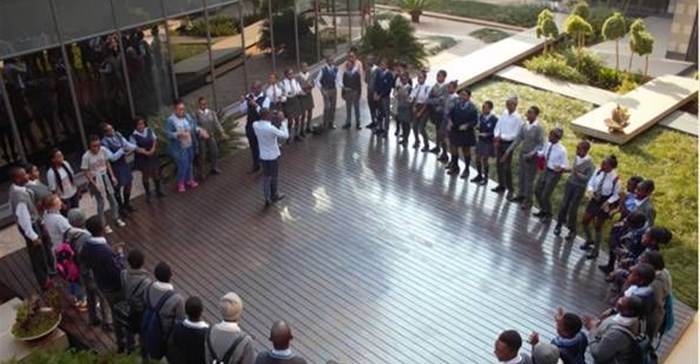
Top stories


HealthcareZimbabwe leads charge against HIV in Africa with lenacapavir rollout
Chris Takudzwa Muronzi 1 day




More news



For technology to fulfill its true potential, citizens, and more importantly the youth, need to be empowered and engaged through technology. According to Brahim Ghribi, head of government relations for Middle East & Africa at Nokia.
“Firstly, we need to get the youth online and, while this seems obvious, it remains a challenge on the continent. If you look at statistics, we still have billions of people, particularly youth, that are not connected or don’t have access to a good online experience,” he says. “The internet has changed the way we work, do business, communicate and learn, so it is clearly a fantastic opportunity for the youth to learn, access information and to get exposure to the world through the huge amount of information and learning materials available online.”
The challenge of getting the youth online is, however, still dependent on developing infrastructure on a nation-wide scale, improving coverage in remote and under-served areas, and improving international capacity at a content level. “We need to focus on investing in rolling out more infrastructure to get the youth online, improve access quality and making access to the internet more affordable.”
Initiatives that encourage the youth to get involved in innovation are also critical. “Beyond connectivity and access to the internet, we need to think about modernising and transforming the education and training systems we have on the continent. We need to have a system that can recognise talent.
“We have seen new systems being developed in recent years that look at adapting to each child’s capabilities and desires, but this should be central to a comprehensive national education and training strategy. The youth must be prepared for productive engagement in society and I personally believe the internet is becoming one of the key delivery engines of the global education system with all the training materials and tools that are being made available by universities and other institutions.
“So, by having the required connectivity and leveraging the internet, the youth in Africa can access a multitude of distance learning opportunities, which will, in turn, contribute to the rapidly expanding needs of developing countries, particularly on the African continent.”
Ghribi adds that while many people are becoming more familiar with the importance of Science, Technology, Engineering, and Maths (STEM), these fields are still not necessarily prioritised in the education system.
“While we know that these fields are important to any economy to drive growth, we grapple with getting the youth interested in these subjects,” he says. “Many scholars believe these subjects need to become more social, solve practical problems, and, more importantly, solve problems the youth can relate to.
“We need to associate these subjects with fun, learning, culture, and society, and not get caught up in the traditional legacy way of teaching because that creates a block for a lot of students from their first experiences of Maths and Science. It’s really a whole shift in the way we teach these important subjects.”
Nokia has been supporting the CodeBus Africa project, a 100-day tour connecting Finnish and African innovators as part of Finland's official 100th-anniversary celebrations. The CodeBus Africa journey, which has been running since February of this year, will span 10 countries in total – Ethiopia, Ghana, Kenya, Mozambique, Namibia, Nigeria, South Africa, Tanzania, Uganda, and Zambia.
At every stop, the CodeBus Africa team, in collaboration with Aalto University, the Finnish Embassy and several African tech hubs, schools and private companies, teach music coding and creativity to local young people, especially girls. The aim of the project is to boost the grassroots level teaching of computer programming and to contribute to long-term efforts to promote quality education, youth empowerment, and employment.
“The point of CodeBus Africa is to drive this change in mindset that is required and explore new ways of teaching coding and programming to young people who might not traditionally have had access to this type of opportunity. For many of these young people, this gives them their first taste of science, programming, and coding in a fun way and we hope to get them hooked on learning and increase their interest in these fields.”
Nokia is also supporting a project called HundrED, which again is part of the 100-year anniversary of Finland’s independence. Finland is well-known for its advanced education system and the idea is to search for examples of optimal teaching and education practices and to then create a global sharing platform for teachers around the world. “HundrED started with 100 best practices from Finland, but we are now also searching for a further 100 exciting practices from around the world to share on the platform.”
The project will cover five continents, including Africa. “This is a very exciting initiative for us at Nokia as it showcases the innovation that exists in the world of education. These are examples of how we can rethink the education system and tackle the issue of driving more interest in STEM subjects.”